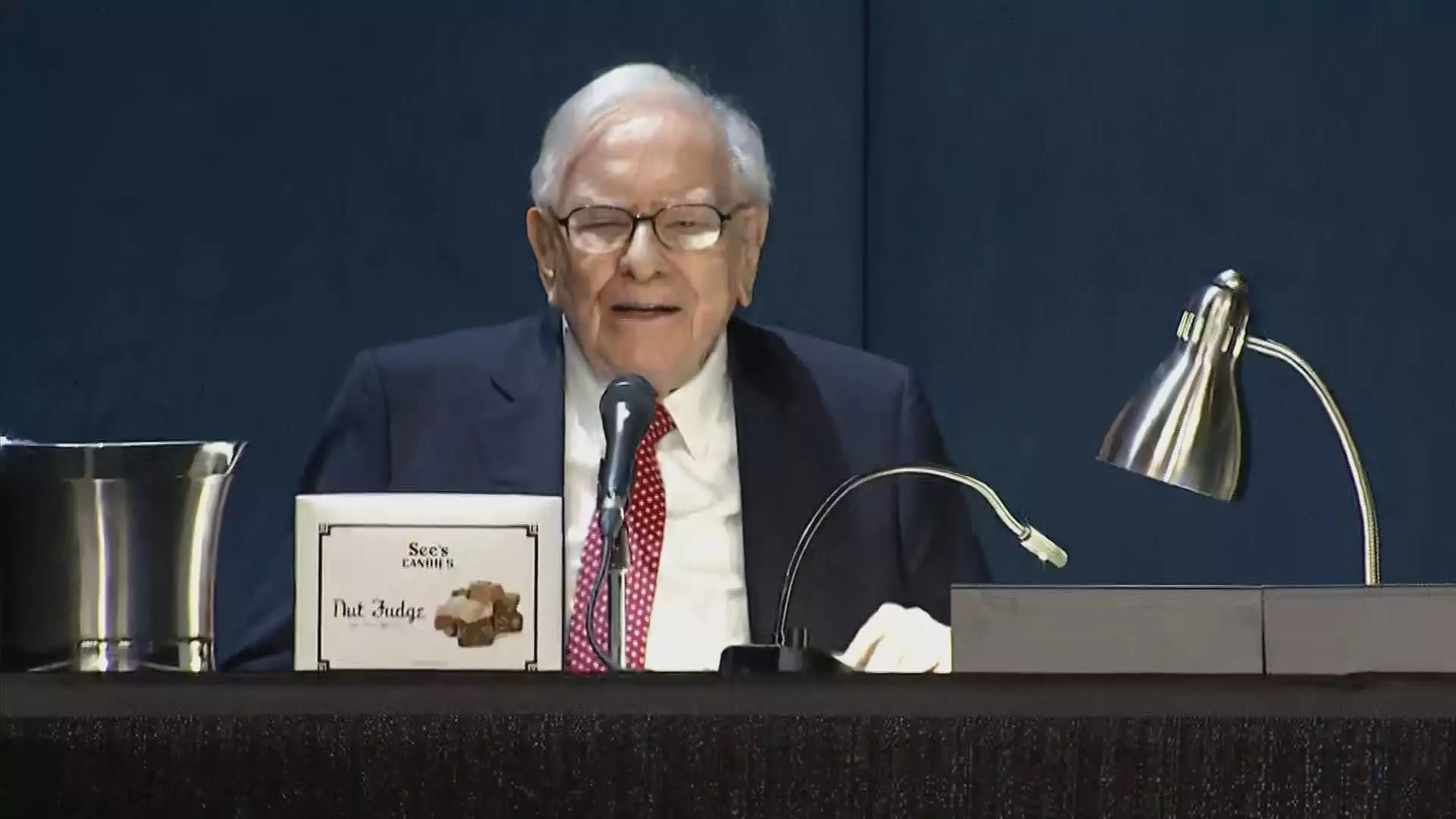Warren Buffett’s Berkshire Hathaway is once again making headlines for its recent decision to divest significant portions of its stake in Bank of America (BofA). This move poses fundamental questions about the investment strategies employed by one of the most revered investors of our time. Since mid-July, Berkshire has sold over $7 billion worth of BofA shares, reducing its ownership to around 11%. This trend of liquidation, notably extending through twelve consecutive trading sessions, signifies a critical change in Buffett’s investment focus.
Buffett’s decision to divest such a substantial stake raises eyebrows within the financial community; it reflects a strategic pivot away from a previously robust holding. At its peak, BofA represented a significant cornerstone of Berkshire’s portfolio, being its second-largest position after Apple. The recent sell-off suggests that the company’s confidence in this particular asset may have waned, or that new opportunities are being prioritized.
Berkshire’s recent sales included approximately 5.8 million shares over multiple days at an average price of $39.45 each, cumulatively bringing in around $228.7 million. Analyzing these transactions, it’s evident that while the sales were substantial, they may not indicate a complete withdrawal from BofA. With 858.2 million shares still held, Berkshire continues to maintain a significant stake, suggesting that this is likely a calculated strategy rather than a complete divestment.
Consider the historical context: Buffett made his initial investment in BofA back in 2011, during a tumultuous period for the financial sector. His investment not only provided crucial capital for BofA but also signified a vote of confidence in the bank’s enduring business model. The conversion of preferred shares to common stock in 2017 further cemented Berkshire’s status as the largest shareholder, demonstrating how deeply-rooted their investment had become. Retrospectively offsetting the magnitude of recent sales against a backdrop of historical loyalty paints a more complex picture of Buffett’s relationship with BofA.
Market Reaction and Corporate Examinations
Following the disclosures from regulatory filings, Bank of America’s stock performance has elicited various interpretations among analysts and market watchers. Since July, the stock has experienced only a modest decline of roughly 1%, despite this liquidity event surrounding its largest shareholder. Moreover, BofA’s shares have appreciated approximately 16.7% in the calendar year, showcasing the stock’s overall resilience and performance relative to the S&P 500.
Brian Moynihan, the CEO of Bank of America, recently acknowledged the profound impact Buffett’s initial investments had on the bank’s stability during its most challenging times. His statement highlights an intriguing juxtaposition; while Buffett is offloading shares, the market appears to be absorbing this activity with relative ease. Moynihan pointedly remarked on the uncertainty surrounding Buffett’s motivations for these sales, indicating that the relationship between major shareholders and corporate executives can at times be mired in mystery.
The implications of this strategic shift are manifold. Primarily, Buffett’s recent actions could signal a broader change in investment philosophy, possibly emphasizing sectors viewed as more promising or resilient in the face of shifting economic landscapes. This would not be unprecedented for Buffett, who is known for adjusting his strategies in alignment with macroeconomic indicators and emerging trends.
Furthermore, there are lessons for other investors in Berkshire’s approach. The careful balance of risk, the importance of maintaining a diversified portfolio, and recognizing market sentiment are all paramount in investment strategy formulation. While Buffett may present as a one-off anomaly given his success, the principles applied in this scenario can be instructive for a diverse pool of investors.
Berkshire Hathaway’s gradual divestment from Bank of America undoubtedly raises questions about leveraging profits versus nurturing long-term relationships with equities that have weathered economic storms. The shifts in Buffet’s strategy warrant close observation as they may signal changes not just for Berkshire but for the larger financial market context as well.

